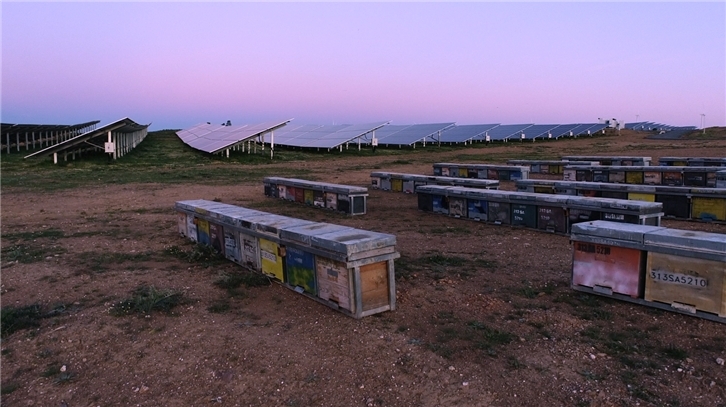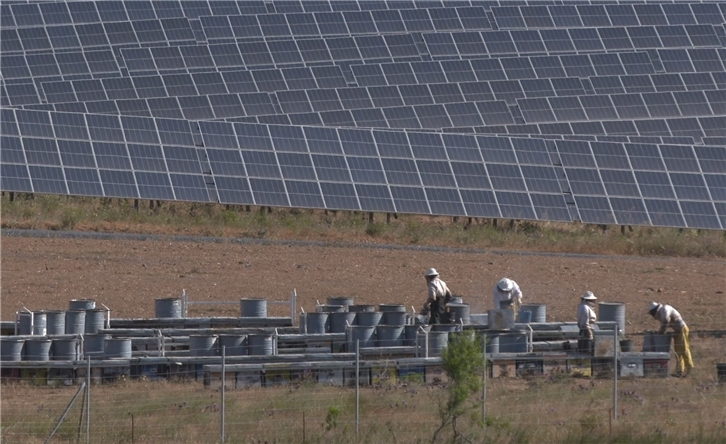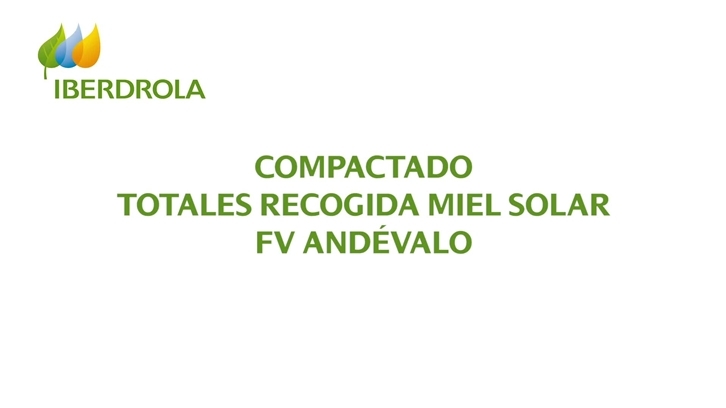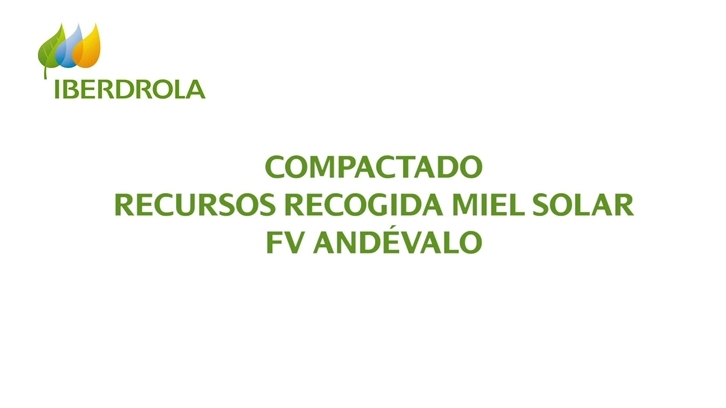News
Collecting honey at the plant in Andévalo (Andalusia) - home to 8 million bees - to mark the United Nations' World Bee Day
Iberdrola collects solar honey produced in the world's largest photovoltaic hive
- It is also collaborating with Tesela Natura to broaden its biodiversification strategy, installing 105 hives at the Núñez de Balboa photovoltaic plant in Extremadura, home to 5 million more bees.
- Housing pollinators in renewable installations conserves ecosystem biodiversity and improves crop yields on farmland.
To mark the United Nations' World Bee Day, Iberdrola has started harvesting the solar honey produced in the world's largest photovoltaic hive. This apiary in Andévalo, in Huelva (Andalusia), is made up of 165 hives occupied by 8 million bees and is improving biodiversity in the surroundings.
In collaboration with specialist company Tesela Natura, the energy company has also installed 105 hives with another 5 million bees at its photovoltaic plant in Núñez de Balboa in the region of Extremadura.
The project will be replicated in other Iberdrola photovoltaic plants in Spain, to show that introducing pollinators into renewable facilities can improve ecosystem stability and boost crops produced on the surrounding farmland. Photovoltaic power plants are not treated with herbicides or insecticides, because the plants that grow there are controlled by livestock grazing, making them a good habitat for bees. These initiatives also create ecological areas suitable for studying how growing aromatic herbs like eucalyptus, milfoil, rosemary, broom and thyme - improves honey quality.
Projects like these allow the company to achieve its goal of improving biodiversity in areas around renewable developments while protecting species like bees, which are responsible for pollinating 80 % of the Earth's plants and 75 % of the food we eat. At the same time, they boost the circular economy, because the honey produced can be sold.
The Anévalo solar plant in Puebla de Guzmán (Huelva), prevents the emission of 15,000 tons of CO2 into the atmosphere every year. For several months now, the 100% renewable energy produced there has been decarbonising beer production at HEINEKEN's four breweries in Spain.
Likewise, the renewable installation in Nuñez de Balboa, Usagre (Badajoz) has the capacity to supply enough clean energy for up to 250,000 people and avoid emitting 215,000 tons of CO2 a year.
Competitive and sustainable energy and environmental balance
Iberdrola has fully integrated the conservation of the biological diversity of ecosystems into its strategy, demonstrating that competitive, clean and sustainable energy supplies can effectively coexist with environmental balance.
The company plans to achieve “no net loss” of biodiversity by 2030, by committing to the net positive impact of new infrastructure developments.
Iberdrola has carried out more than 1,450 measures to protect biodiversity in the last three years alone, combining renewable project development with the conservation of biological diversity of ecosystems and caring for flora, fauna and natural heritage.
The company is aligned with the compliance of the Sustainable Development Goals (SDGs) directly related to nature (SDGs 6, 13, 14 and 15) and works to promote economic and social development while respecting the environment.












